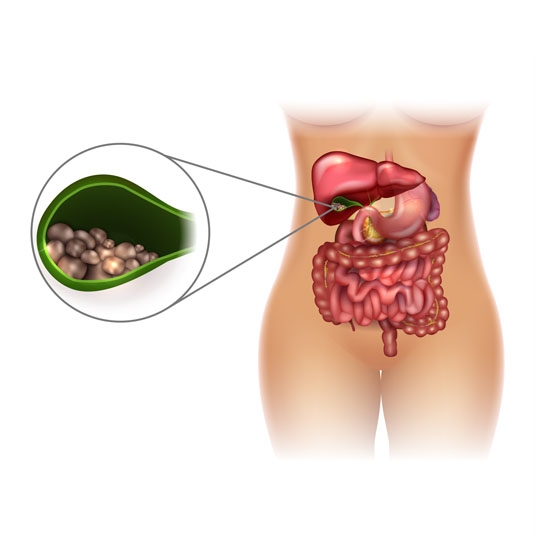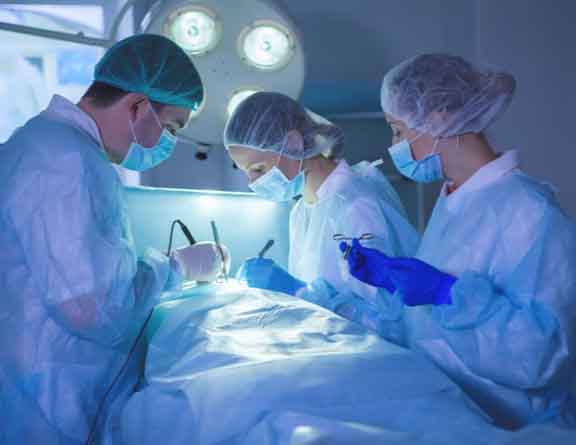Why should I choose Pristyn Care for gallstone surgery in Raipur?
Pristyn Care is associated with a few of the best hospitals, clinics, and other healthcare institutions in Raipur. We also house some of the best laparoscopic surgeons and doctors in the city that are highly qualified to operate cutting-edge tools and technology for a very high success rate. Pristyn Care also offers daycare surgery that allows the patient to go back home on the same day of surgery after consulting the doctor. Pristyn Care offers the following advantages –
- USFDA approved surgeries
- Highly experienced surgeons and doctors for a very high success rate.
- Advanced laparoscopic treatment with a higher recovery rate for best results.
- Free cab pickup and drop facility on the day of surgery
- Zero cost EMI facility
- No file charge or interest
- 30% discount on diagnostic tests,
- Free follow-ups after surgery.
- Assistance with insurance claims
- COVID-19 free environment
How Pristyn Care is Associated With the Top Hospitals in Raipur?
We work in alignment with some of the most super-specialty clinics and hospitals in Raipur. Most of our partner hospitals are accredited by the National Accreditation Board of Hospitals and Healthcare Providers (NABH). This accreditation acts as a symbol of authenticity. Our associated hospitals have more than one consultation room and private rooms that are fully equipped with the latest technology. The assistance provided by the hospital staff including nurses, consultants, surgeons, etc. ensures that each and every patient undergoing gallstone removal surgery from us has a comfortable hospital stay. In addition to this, we make sure that our partner hospital in Raipur is following every safety measure pertaining to COVID-19 infection.
Risks and complications of untreated gallstones
Sometimes, gallstones can be asymptomatic which means they may not cause any major pain or discomfort. Untreated gallstones can lead to several risks and complications. It is estimated that around 97% of gallbladder cancer patients harbor gallstones. Hence, gallstone surgery should not be ignored. Several risks and complications of gallstones are –
- Acute cholecystitis – occurs when gallstones block the bile duct causing inflammation and infection in the gallbladder.
- Recurrent and intense abdominal pain and frequent vomiting
- Jaundice
- Pus formation in the gallbladder
- Gallbladder infection
- Bile duct infection
- Blood infection
- Pancreas inflammation
- Gallbladder cancer
- Gangrene & perforation of the gallbladder
- Cholangitis – a life-threatening biliary system infection
Advantages of laparoscopic gallbladder removal surgery (cholecystectomy) at Pristyn Care
Laparoscopic surgery for gallbladder removal is an advanced daycare procedure where the patient can go home on the next day of surgery. Its minimally invasive nature and faster recovery rate have made it famous among patients. It is preferred by most patients due to the following benefits:
- Minimal incision, similar to the size of a keyhole.
- Almost minimal pain, since done under general anesthesia
- Surgery time is around 45 minutes to 1 hour
- Minimum risks of infection, excessive bleeding, etc.
- Faster recovery and allow the patient to return to normal activities quickly
- No major scars after surgery
- Almost no chances of recurrence
How to book an appointment at Pristyn Care for gallstones treatment in Raipur?
- Fill out the patient form on our website www.pristyncare.com. Once your appointment form is submitted, our medical coordinators will reach out to you at the earliest to fix an appointment with the concerned doctor according to your schedule.
- You can also connect with our medical coordinators through the contact number on our website. The medical coordinator will take the necessary inputs from your end regarding your condition and connect you with the doctor near your area and book an appointment consecutively.
- You can also book an appointment through our Pristyn Care app. A team of medical coordinators will reach out to you and arrange either an offline or online consultation from doctors near your area at the earliest via video call, and a nominal consultation fee will be charged.
How do gallstones form?
A gallstone is a stone that forms inside the gallbladder due to precipitated bile components. The presence of gallstones is called cholelithiasis. The common reasons for gallbladder stone formation are:
- Bile containing too much cholesterol
- Bile containing excessive bilirubin
In all these cases, the excess cholesterol and bilirubin may start to crystallize and eventually turn into stones. Besides the above-mentioned reasons, there are two other factors that impact gallstone formation. The first one is the frequency and ability of the gallbladder contractions. If the contractions are incomplete and infrequent, the bladder won’t empty properly and cause the bile to become over concentrated. The second factor is the presence of proteins in the liver and bile that either promote or inhibit gallstone formation.
Initially, the size of these stones is equal to a grain of sand. However, it can grow quickly and become as large as a golf ball. Moreover, the gallbladder may contain one or multiple stones of smaller or equal size.
What are the different types of gallbladder stones?
Gallbladder stones are divided into three different types based on their composition. These types are explained below:
- Cholesterol Stones- It is the most common type of gallstone. Around 35% to 90% of stones present in gallstones are cholesterol stones. They can be light yellow, dark green, brown, or chalk white in color and have an oval shape. Usually, their size is between 2 to 3 cm long, but they can also grow larger if left untreated for a long time.
- Pigment Stones- This type of gallstone is composed primarily of bilirubin, which is an insoluble bilirubin pigment polymer, and calcium (calcium phosphate) salts present in the bile. Around 2% to 30% of stones present in the gallbladder are bilirubin or pigment stones. They are small and often dark in color.
- Mixed Stones- Also known as brown pigment stones, they are composed of 20-80% of cholesterol. The rest of the constituents can be calcium carbonate, palmitate phosphate, bilirubin, and other bile pigments, such as calcium bilirubinate, calcium palmitate, and calcium stearate. These types of stones usually form when the biliary tract gets infected.
All these three types of stones can be present in the gallbladder altogether or alone. But in each scenario, you will need proper treatment for them.
Why should gallbladder stones not be left untreated?
When left untreated, gallbladder stones can turn into a serious medical issue. If you don’t take a proactive approach for your health and consult a doctor to remove the stones, it can cause the following complications:
- Inflammation of the gallbladder(Cholecystitis)- When the stone gets stuck in the bladder, it will cause inflammation, severe pain, and fever.
- Blockage of the common bile duct- When the stones enter the bile duct and get stuck there, it causes infection in the bile duct, jaundice, and severe pain as well.
- Blockage in the pancreatic duct- Pancreas is connected to the bile duct directly. Hence, there is a high possibility that the stones can travel to the pancreatic duct as well. If this happens, it will cause inflammation in the pancreas (also known as pancreatitis). Due to the inflammation, you will experience intense and constant pain in the abdomen and may need immediate hospitalization.
- Gallbladder cancer- Frequent occurrences of gallstones can increase the risk of gallbladder cancer as well. Though it is rare, it is better that you seek proper treatment to reduce the chances of gallbladder cancer.
Ignoring gallbladder stones is not advisable under any circumstances. You should consult a doctor and discuss what you can do to get rid of the stones permanently.
Prevention of Gallbladder Stones
It is mostly our lifestyle that increases the risk of gallbladder stone formation. Therefore, you can prevent gallstones by making the following changes in your daily life:
- Do not skip meals- Try your best to stick with the usual meal times each day. Skipping meals can cause excess bile secretion and deposition.
- Lose weight slowly- Being overweight is a risk factor for gallstone development. So, if you are trying to lose weight, take things slow. Don’t push your body to its limits in order to lose weight as rapid weight loss can cause the liver to secrete extra cholesterol, which can further increase the risk of gallstones.
- Eat high-fiber foods- Foods that are rich in fiber ensure that the levels of bad cholesterol in the body are minimal. Furthermore, fiber keeps the digestive system moving and helps to flush out the bile from the body. Therefore, it is crucial that you add more fiber to your diet.
- Exercise regularly- It doesn’t necessarily mean that you have to do an extensive workout, being physically active is enough. The less you move, the slower the digestion process will be. As a result, the bile won’t flush out correctly. Invest some time in exercising and leave the sedentary lifestyle behind.
- Take prescribed medications- People who are at high risk of developing gallstones due to heredity or other factors can take medicines to lower the risk of gallstone formation.
You can talk to a gallstone specialist to find out what else you can do to prevent gallstones.
Dietary Changes for Gallstones
The food items that you eat on a regular basis have a significant impact on the body. If you eat a healthy and balanced diet and combine it with physical activities, it can lower the risk of gallstone development to almost negligible.
According to experts, the ideal diet for gallstones consists of:
- Fiber-rich foods like fresh fruits and vegetables.
- Whole grains, including brown rice, oats, whole wheat bread, etc.
- Fewer refined carbohydrates and less sugar.
- Healthy fats, such as fish oil and olive oil that helps to contract the gallbladder.
Along with knowing what foods to eat, you should also keep your cravings in check and avoid unhealthy fats, such as desserts and fried foods. Talk to your healthcare provider and ask them to make changes in your diet that will help you avoid gallstones and other health problems as well.
List of Gallstones Doctors in Raipur
| 1 | Dr. Soumitra Manwatkar | CGMC 11026/2021 | 4.9 | 13 + Years | Near Ashoka Ratan, Vidhan Sabha Rd, Raipur | Book Appointment |
| 2 | Dr. Abhijeet Singh | 5428/2014 | 4.5 | 12 + Years | Amlihdih, New Rajendra Nagar, Raipur | Book Appointment |









.svg)









